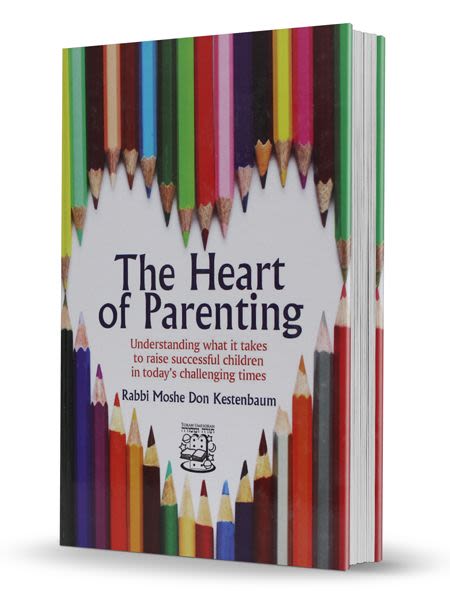
The Haystack
If a person ignores his shortcomings or pretends that they don't exist, he'll be fooling himself and his happiness won't be genuine or complete...

Translated by Rabbi Lazer Brody
Emuna enables us to be happy all the time. Even if we have an apparent shortcoming, it's because Hashem created us that way in order to facilitate our soul correction and fulfillment of our mission in this sorely limited physical life on this earth. We can therefore viewed our shortcomings as our personal form of perfection, for they enable us to perform the task that Hashem sent him here to do.
The Gemara shows us how Hashem's Divine providence gives a person the best possible circumstances to pursue his mission in life, as we see in the following story about Rabbi Akiva, one of our greatest sages of all  time.
time.
Rabbi Akiva grew up as an illiterate laborer. He worked for Calba Savoa, one of ancient Israel's richest people. Calba's daughter Rachel noticed Akiva's superb character traits; she understood that he was an unpolished diamond that would eventually shine bright. She asked her father's permission to marry him. Her father angrily refused, threatening to cut off all ties with her – financial and otherwise. Rachel married Akiva anyway, confident that he was destined for greatness despite his current lowly status.
The young couple was so poor that all they had was straw to sleep on and cover themselves at night. Every morning, Akiva would have to remove the stems of straw from Rachel's hair, comforting her than when he'd get rich one day, he'd buy her a precious gold jewel for her hair.
Hashem saw the young couple's dedication and decided to send Elijah the Prophet to encourage them. Elijah knocked on their door, dressed as a poor beggar. He said that his wife just gave birth and that he has nothing with which to cover and warm the new baby. “Maybe you could spare a bit of straw?” he asked.
Gladly, the young couple gave the “poor man” some straw, the only commodity they possessed. He thanked them and left. RabbI Akiva happily turned to his wife and said,”You see? We're not so bad off after all. We have plenty of straw, yet some people don't even have that!”
On the surface, the above story is odd: if Hashem took the trouble of sending Elijah the Prophet to the young couple, couldn't He have sent them a gemstone or a sum of money to ease their poverty? There are plenty of stories where Elijah bestowed riches upon those who were privileged to meet him. Yet, all he does is show the young couple that some are worse off than them. What type of encouragement is that?
With Divine providence in mind, we see poverty is the ideal climate for Rabbi Akiva's spiritual development into the scholar destined to codify Jewish oral law. Without such dire poverty, Akiva the laborer wouldn't have become Rabbi Akiva the holy Tannaic sage. As such, Elijah the Prophet encourages him and uplifts his spirits, but doesn't make life easier on him.
Pay close attention: if a person ignores his shortcomings or pretends that they don't exist, he'll be fooling himself and his happiness won't be genuine or complete. Such self-deception is the product of arrogance, not emuna. But, just as the simple one is fully aware of his disadvantages and is nonetheless happy. This is truly the formula for success.
Every person alive has shortcomings, no matter how much he or she attempts to mask them. One has a financial problem and the other suffers from a physical ailment. A third person has a special-needs child while the fourth has marital difficulties. Hashem knows the ramifications of each difficulty in life, and how each challenge will help a person attain his soul correction. By accepting our difficulties, shortcomings and challenges with emuna, we can truly be happy.
Don't ever lose heart! Look how the great tzaddikim rose to lofty personal and spiritual heights by virtue of their shortcomings in life. Rabbi Chanina ben Dosa was utterly poor, yet the whole world received sustenance in his virtue. The Chazon Ish was sickly, the Lubavitcher Rebbe was childless, and the Klausenberger Rebbe was a Holocaust survivor who lost a wife and eleven children. The examples are many.
People mistakenly look at the tzaddikim who are happy with their lot in life as if they were born into the lap of luxury. Indeed, the fact that they accepted their difficulties in life with emuna and joy is what made them truly great.
The simple one's secret to success is a lesson to us all: greatness does not bring happiness; happiness brings greatness.











Tell us what you think!
Thank you for your comment!
It will be published after approval by the Editor.